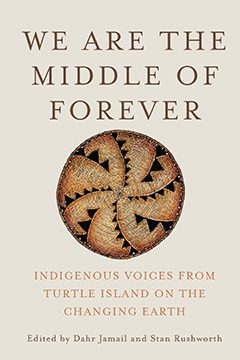by Ethan Mollick in One Useful Thing…With continued advancements in model architecture and training techniques, we’re approaching a new frontier in AI capabilities. The independent AI agents that tech companies have long promised are likely just around the corner. These systems will be able to handle complex tasks with minimal human oversight, with wide-ranging implications. As the pace of AI development seems more certain to accelerate, we need to prepare for both the opportunities and challenges ahead.
Superbugs ‘could kill 39m people by 2050’ amid rising drug resistance
by Kat Lay in The Guardian…Child deaths from infections see ‘remarkable’ decline but AMR fatalities of over-70s likely to rise by 146%, study finds
Analysis: Drug-resistant infections are on the rise – so why aren’t we getting any new antibiotics?
A few rules for predicting the future by Octavia E. Butler
by Octavia E. Butler in Common Good Collective…So why try to predict the future at all if it’s so difficult, so nearly impossible? Because making predictions is one way to give warning when we see ourselves drifting in dangerous directions. Because prediction is a useful way of pointing out safer, wiser courses. Because, most of all, our tomorrow is the child of our today. Through thought and deed, we exert a great deal of influence over this child, even though we can’t control it absolutely. Best to think about it, though. Best to try to shape it into something good. Best to do that for any child.
The U.S. needs to pay more attention to electronic warfare
by Steven Glinert in Noahpinion…Electronic warfare (EW) is a bit of a sleeper in the US arsenal. The US invented its modern form and has used it to great effect in every war we’ve fought, especially since 1990. Indeed, if you want to know what the literal “war” in “chip wars” is, it’s this. The US spends about as much on it as its much cooler and flashier younger sibling, cyberwarfare (around $5b) and spending is due to increase. Likewise, the Chinese think of it as essential to their victory in a potential war against the US. Finally, it has become a defining aspect of the war in Ukraine, with Russian and Ukrainian forces playing a cat and mouse game between drones and electronic attacks.
The short history of global living conditions and why it matters that we know it
by Max Roser in Our World in Data…Very few think the world is making progress. In this article, we look at the history of global living conditions and show that the world has made immense progress in important aspects.
‘Never summon a power you can’t control’: Yuval Noah Harari on how AI could threaten democracy and divide the world
by Yuval Noah Harari in The Guardian… Forget Hollywood depictions of gun-toting robots running wild in the streets – the reality of artificial intelligence is far more dangerous, warns the historian and author in an exclusive extract from his new book
More in this category

Omega + The Argentine Association of Environmental Lawyers: Innovation & creativity in action
The Argentine Association of Environmental Lawyers has constituted a space for activism related to environmental and social justice for over twenty years.

Omega + HOMEF: A timely & essential partnership
Health of Mother Earth Foundation (HOMEF) is pleased to be partnering with the Omega Collaborative and Commonweal in executing the Omega Resilience Awards (ORA) programme through the Omega Resilience Awards – Africa (ORA - Africa) platform. We are excited about this...

African food systems imploding: Impacts of the war in Ukraine
If alarm bells are ringing loudly and incessantly it’s because
governments, civil society, activists, development organisations,
and donors are signalling the negative impact of the war in
Ukraine on African food systems.
Ecosocial collapse & the Lithium Triangle in Argentina, Bolivia & Chile
Dr. Maristella Svampa and Enrique Viale joined Tom Kruse from the Rockefeller Brothers Fund to discuss what the predominant narrative around the polycrisis–framed by North American and European-based institutions–is missing when it fails to incorporate perspectives from the Global South.

Ancient green
Mosses, I think, are like time made visible. They create a kind of botanical forgetting. Shoot by tiny shoot, the past is obscured in green. That’s why we have stories, so we can remember.

The Global Tapestry of Alternatives: Stories of resilience, existence, and re-Existence
Our food systems are not just the work of humans. They are the work of the mountains, of Pachamama [Mother Earth], of the sacred, the whole community which is centered on reciprocity, solidarity, and respect for elements of life. This is buen vivir (‘living well’) for us.

We Are the Middle of Forever
Edited by Dahr Jamail and Stan Rushworth
An innovative work of research and reportage, We Are the Middle of Forever places Indigenous voices at the center of conversations about today’s environmental crisis.

Ukraine: Nuclear security & nuclear safety Dr. Tatsujiro Suzuki
A rapid response webinar on the nuclear implications of the invasion of the Ukraine. Professor Tatsujiro Suzuki will cover:

“Nature has ceased to trust us”
Nature always loves balance. Therefore, [the old people] say we have lost the trust of nature. The way we dealt with her led to this.

The climate refugees are coming: Countries and international law aren’t ready for them
For generations, our approach to asylum has centred on war and political persecution, not natural disaster. Unless we change that soon, mass migrations to the developed world will end in violence

Reflections on the inner challenges of a ghastly future
Birju Pandya’s response to the article Underestimating the Challenge of a Ghstly Future

